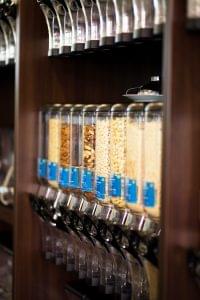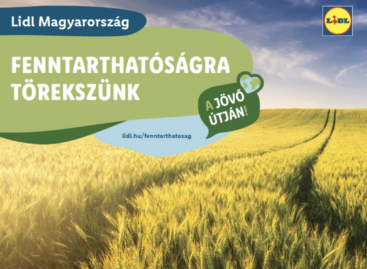Sustainability emerging as key snacking trend
As snacking trends around the world evolve, sustainability is emerging as a key theme across several markets. In a recent blog post, Sally Lyons Wyatt, executive vice president and practice leader of client insights at IRI, outlined six sustainable snacking trends that are poised for growth in the years ahead.

The use of non-recyclable plastic snack packaging is on the decline, as companies adjust their strategies to include more earth-friendly materials. Examples include a shift to paper and cardboard; compostable packaging and recycling-oriented label inclusions; edible straws and seaweed-based packaging.
More brands across the globe are focusing on certifications that support the social, economic, and environmental pillars of sustainability, such as Fair trade, Rainforest Alliance Certification, FSC, UTZ and sustainable seafood organizations.
Stores that offer reusable packaging programs and promote the use of refillable vessels are on the rise. Examples include: bring-your-own containers for bulk snack dispensaries, refill store models, providing all snack products in refillable glass jars.
More snacks are being made from upcycled food products that would otherwise have gone to waste, such as: using imperfect/ surplus fruits and vegetables for snacks, reusing wasted grain from beermaking as an ingredient for crackers and pasta.
Pride of country is resonating among consumers and could be a candidate for expansion. This movement also offers the dual marketing appeal of both supporting local farmers and being more eco-friendly.
Tying snack product sales to charitable efforts is another growing trend that enables snack brands to not only do good, but also achieve sustainability differentiation. Examples include: linking purchases to tree planting, partnering with food banks to help fight food insecurity.
As Lyons Wyatt noted, definitions of sustainability in the snack industry are ever-widening, along with new innovations in how these products are being more sustainably sourced, manufactured, packaged, and marketed.
“Given the premiums consumers are willing to pay for these products across many countries around the world, it’s safe to assume that the appetite for sustainable snack products will only continue to grow in the years ahead,”
she concluded.
Related news
The majority of Hungarians spend less than 50 thousand forints on Christmas gifts, sustainability is an important aspect, but not the primary one
Gift-giving is an essential holiday tradition, but what really matters…
Read more >Lidl has published its 3rd sustainability report
Lidl Hungary’s sustainability report for the 2022/2023 business years has…
Read more >ESG – about sustainability standards, from a legal perspective
Since December 2023 several pieces of legislation have been published…
Read more >Related news
Eckes-Granini acquires fruit juice concentrate producer in Germany
Eckes-Granini, one of Europe’s leading juice producers, has acquired Wolfgang…
Read more >The latest issue of Trade magazine is out now!
This time the digital version has been extended to 192…
Read more >After a subdued year, the holiday season is strong
74% of online shoppers, around 3.1 million people, are preparing…
Read more >








